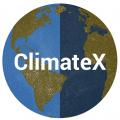Description
In this video, MIT’s Professor of Atmospheric Science, Kerry Emanuel, explains the origins of climate science and shares with us the areas which interest him most.
Professor Emanuel stresses the importance of climate science research and implores talented students to get involved in what he considers to be an underpopulated field.
Transcriptions
00:00:00:09] I'm Kerry Emanuel. I'm a Professor of Atmospheric Science here at MIT. I've been at MIT for 36 years. Before that, I was at UCLA for three years.
[00:00:10:28] And I've been interested in the atmosphere since I was a young child and dreamed that I might make a profession of it someday, and I have. Over my professional career, my interest has shifted a little bit more in the direction of tropical meteorology and climate.
[00:00:33:04] When I think about what I'm doing, and what I'm doing-- it's very important to understand that the pursuit of climate science, like any other science, is driven fundamentally by curiosity about the natural world. It's tempting to think that climate science is all about solving the global warming problem. But climate science has been around for well over 100 years, and it's dealt with interesting aspects of the climate system long before global warming became an issue, and certainly before it became a politicized issue.
[00:01:10:28] What we understand about the climate is based mostly on just basic physics, and in some cases, chemistry, and biology, and basic theory-- which, of course, is much harder to describe to a layman than a big climate model. One of the most exciting scientific discoveries that we have come across in the last decade or so is the recognition that in the tropics, the clustering of convection serves to dry out the atmosphere. And that actually serves to cool it back down.
[00:01:43:12] So we think that we may have stumbled upon a kind of a tropical thermostat that keeps the tropical climate stable, relatively stable. And we know from geological evidence that it's been stable over many, many hundreds of millions of years, more stable than models tend to like it to be. Unfortunately, that doesn't save us from the risk of climate change in middle and high latitudes. And there are effects in the tropics that aren't necessarily to do with temperature, but rainfall that accrue from climate change. But scientifically, this is a really interesting discovery.
[00:02:21:08] I'm extremely interested in what controls the distribution of the most important greenhouse gas in the atmosphere, which is actually water vapor. Water vapor isn't talked about very much, because it's a feedback in the climate system. It has a very complex distribution in space and time. And one of the things that controls it is convection thunderstorms in the tropics, including aggregates of convection, which sometimes take the form of hurricanes.
[00:02:53:16] I'm always trying to encourage undergraduates to get interested in climate science. We require students who have very good training in math and physics, and increasingly also in biology and chemistry. There's a huge subdiscipline of atmospheric chemistry which investigates problems like what controls ozone, what controls the long-term carbon dioxide content of the atmosphere.
[00:03:17:04] These are issues that have to do, also, with chemistry and biology. We need talent, and this is a very interesting undertaking, and right now, I think under-populated. So come and see us.
More Info
Climate Science and Climate Risk: A Primer (PDF)
12.340x Global Warming Science, an MITx course on edX





